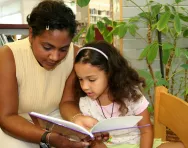Important update from TheSchoolRun
For the past 13 years, TheSchoolRun has been run by a small team of mums working from home, dedicated to providing quality educational resources to primary school parents. Unfortunately, rising supplier costs and falling revenue have made it impossible for us to continue operating, and we’ve had to make the difficult decision to close. The good news: We’ve arranged for another educational provider to take over many of our resources. These will be hosted on a new portal, where the content will be updated and expanded to support your child’s learning.
What this means for subscribers:
- Your subscription is still active, and for now, you can keep using the website as normal — just log in with your usual details to access all our articles and resources*.
- In a few months, all resources will move to the new portal. You’ll continue to have access there until your subscription ends. We’ll send you full details nearer the time.
- As a thank you for your support, we’ll also be sending you 16 primary school eBooks (worth £108.84) to download and keep.
A few changes to be aware of:
- The Learning Journey weekly email has ended, but your child’s plan will still be updated on your dashboard each Monday. Just log in to see the recommended worksheets.
- The 11+ weekly emails have now ended. We sent you all the remaining emails in the series at the end of March — please check your inbox (and spam folder) if you haven’t seen them. You can also follow the full programme here: 11+ Learning Journey.
If you have any questions, please contact us at [email protected]. Thank you for being part of our journey it’s been a privilege to support your family’s learning.
*If you need to reset your password, it will still work as usual. Please check your spam folder if the reset email doesn’t appear in your inbox.
Language-learning in primary schools

Since September 2014 all maintained primary schools have taught a foreign language in Key Stage 2. ‘Learning a language at this stage can make a real difference to children’s futures, and open their hearts and minds to other cultures,’ says Bernardette Holmes, chair of the primary special interest group at the Association for Language Learning.


Start a unique learning programme!
- Weekly programme for each school year
- Worksheets sent direct to your inbox
- Keeps your child's learning on track
Linguistically, starting to learn languages early gives your child a head start. ‘In childhood, we’re much more attuned to different sounds, which means young learners are more able to mimic native speakers’ pronunciation,’ Bernardette explains. ‘They are also less inhibited than older children and are able to imitate and experiment with sounds without feeling embarrassed. They can make rapid progress, which could help them develop a lifelong love of languages.’
What language will your child learn?
When the Department for Education (DfE) published its draft National Curriculum, it gave schools a limited selection of languages from which to choose, but the final version of the curriculum removed the limitations so schools can teach whichever language they like.
‘The majority of schools will offer the language that staff feel most able to cope with,’ says John Foxwell, director of education at EMAS UK, which provides schools with language resources and sponsors the Primary Languages Classroom Awards.
The most popular choices are French, German, Spanish and Italian – languages that many teachers have some experience of – but some schools offer less conventional options such as Mandarin Chinese, Latin or Ancient Greek or Japanese.
Who teaches the language?
In most schools, lessons will be taught by an existing member of staff who has some experience of the language on offer. ‘Ideally, this would be the usual class teacher, as they understand the developmental level of the learners and can link languages in with other areas of the curriculum,’ says Bernardette.
Schools may draw on outside resources to deliver or support the teaching, for example teachers from nearby secondary schools, schemes that promote language-learning in schools such as the Institute of Education’s Confucius Institute for teaching Chinese, or parents who are native speakers. ‘Native language users are best placed to offer advice on tonal variations and accents,’ John adds.
What happens in a language lesson?
‘The DfE don’t impose any particular methodology, so it’s up to schools to decide how to deliver language lessons,’ says Bernardette. However, children are taught all four skills involved in language-learning: speaking, listening, reading and writing.
Most schools are likely to make the teaching interactive, with lots of conversational practice and use of DVDs and online resources. ‘Immersion days and role play situations like cafes and shops are also popular options to enthuse and encourage learners,’ adds John.
What level will be expected of your child?
The curriculum focuses on practical communication. Children will be expected to:
- Listen attentively to spoken language, join in and respond
- Explore the patterns and sounds of the language, for example through songs and rhymes
- Engage in conversations, ask and answer questions, express opinions, and seek clarification and help
- Speak in sentences using familiar vocabulary, phrases and language structures
- Develop accurate pronunciation and intonation
- Present ideas and information orally to a range of audiences
- Read carefully, showing understanding of simple writing
- Appreciate stories, songs, poems and rhymes in the language
- Develop their vocabulary, including through using a dictionary
- Write phrases from memory and adapt them to create new sentences
- Describe people, places, things and actions verbally and in writing
- Understand basic grammar
Will you have to help with homework?
All schools have a policy of parental involvement in children’s learning, and the same will apply to languages. ‘A good school will help you to support your child’s language-learning at home, whether that’s through homework, online activities or sharing stories and songs,’ says Bernadette. However, when setting homework, schools should respect the fact that parents might not have any experience of the language.
If formal homework isn’t set, you can still help your child to get to grips with his new language outside school. ‘For example seeing foods from different countries in the supermarket, or choosing destinations for real or imaginary holidays, opens up discussions and explanations and provides talking points and the opportunity to introduce basic vocabulary,’ says John.








